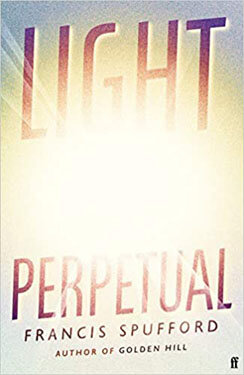It's been quite a while since the publication of “Outline” which is the only other book by Rachel Cusk that I've read. I was enthusiastic to try her fiction again by reading “Second Place” since it has been listed for this year's Booker Prize, but now I remember why I've avoided her books. I'm not necessarily put off by the ponderous nature of her narratives or the rarified environments her fiction is set in. It's more the manner in which she writes about her characters which is entirely centred on the self, but avoids getting to the heart of their being. Her narrators seem so intent on intellectualizing their position in life and relationships with other people that I struggle to emotionally connect with their experiences or point of view. I understand this is a conscious choice and sometimes what is left unsaid says more than forthright confessions. But this stance is more troublesome than preventing me from connecting with her characters. It means I actually struggle to engage with the ideas and issues raised in the story because I don't understand the narrator's position.
This most recent novel is told from the point of view of a woman speaking to someone named Jeffers. Who Jeffers is or why she's giving him a detailed account of a particular time in her life is never specified, but it means she controls the entire narrative and the only information we have is through her subjective point of view. Can we trust her perspective? Even though she states “I am determined not to falsify anything, even for the sake of a narrative” we're often left wondering how much she's shaping this story based on what she chooses to recount and what is left out. We never even learn her name as she's just referred to as M. Her story concerns a period when she invited a famous artist (only referred to as L) to her coastal English home to temporarily reside in a small guest cottage on her property that she refers to as the second place. Given that the letter M comes after L we can already see the layered meaning of this novel's title.
At the beginning of the story she describes a disturbing experience where she was hounded by the devil while travelling in Paris, yet the circumstances surrounding this bizarre, haunting encounter remain vague. Though she welcomes the artist L to her home with the hope that their interactions will enhance her life they soon develop an antagonistic relationship and this leads her to characterise him as the devil as well. To believe oneself hounded by such a figure feels to me like an extreme case of paranoia. I started to wonder if L is someone that M has just invented to torment her. Every time they converse she becomes so defensive it's as if there's no way for him to interact with her where she won't take the stance of someone being persecuted: “he emanated a kind of physical neutrality that I took personally and interpreted as a sign that he did not consider me to be truly a woman.” L also brings with him a beautiful and wealthy younger woman named Brett who makes M feel inadequate. It's (probably intentionally) somewhat comical the way Brett so confidently inhabits being a woman and the fact that L is inspired to paint portraits of everyone except for M when really she's the one wanting to be immortalized in art. But this humour didn't have the sympathetic effect which self deprecation or insecurity usually inspire.
It seemed to me that the narrator must have been severely traumatized or wronged, but I could never clearly see in what way. She refers to a difficult first marriage, her struggle to know how to be a woman and feelings of self disgust, but these things are only lightly touched upon without showing their fully complexity. Her identity remains elusive as do other aspects of the story such as a crisis in society which complicates L travelling to their home (the financial crash? the pandemic?) and her career as a writer (are we meant to assume this is Cusk herself?) All this intentional vagueness meant the narrator's various dilemmas regarding her identity and the existential crisis of her existence didn't feel anchored to anything concrete so I found it difficult to empathise with her. She comes across as so self-centred and navel-gazing amidst her idleness “I often found myself with nothing to do. Nothing to do!” that it mostly felt like she was inventing drama in her life simply to distract herself from her boredom.
I was continuously frustrated by the way the narrator failed to consider any inner life other than her own: “Everybody else, it seemed to me, lived perfectly happily in themselves. Only I drifted around like a vagrant spirit, cast out of the home of myself to be buffeted by every word and mood and whim of other people.” It takes a real failure of imagination and lack of sympathy to imagine that everyone else is perfectly content inhabiting themselves. I'm not averse to a story about introspection by someone writing from a place of privilege or pondering the way abstract theories can hone our understanding of identity. In fact, the premise of an unnamed narrator speaking in detail about herself to a mysterious man strongly reminded me of the novel “The Appointment” by Katharina Volckmer. But, where Volckmer's novel succeeded in teasing out tantalizing ideas and complicated issues through such extended contemplation, Cusk's book feels like it's simply posturing and grasping for profundity.

















